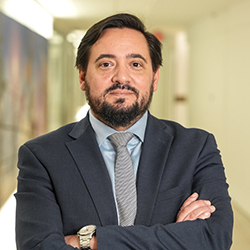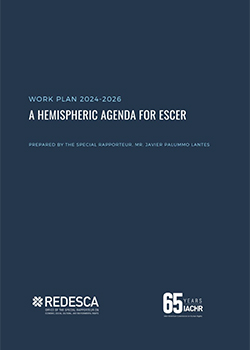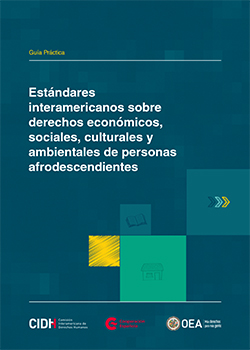
Special Rapporteurship on Economic, Social, Cultural, and Environmental Rights
On April 3, 2014, acknowledging the interdependence and indivisibility of human rights, the IACHR initiated the process to establish the Office of the Special Rapporteur on Economic, Social, Cultural and Environmental Rights . This endeavor concluded in 2017 with the launch of REDESCA and the appointment of its first leader, recognizing the interdependence and indivisibility of human rights.
The establishment and activation of REDESCA are part of a context of significant changes within the Inter-American Human Rights System (IAHRS). This development has not occurred in isolation but reflects a series of jurisprudential and institutional advancements that have profoundly influenced the understanding and protection of these rights in the region. A pivotal step was taken in 2012 with the creation of a unit within the IACHR focused specifically on ESCE rights, addressing the need for specialized attention to a category of rights historically less emphasized compared to civil and political rights.
In 2015, the monitoring mechanism for ESCE rights was strengthened through the implementation of the follow-up system of the Additional Protocol to the American Convention on Human Rights in the Area of Economic, Social, and Cultural Rights, known as the Protocol of San Salvador. The Working Group for the Analysis of National Reports under the Protocol of San Salvador (GTPSS) held its First Session from February 24 to 26, 2015. This event has been significant for the status of ESCE rights in the region, marking the beginning of the implementation of this IAHRS monitoring tool.
Simultaneously, during this period, the jurisprudence of the Inter-American Court of Human Rights (I/A Court H.R.) began to allow direct justiciability of ESCE rights. This key jurisprudential development commenced with the case of Lagos del Campo vs. Peru in 2017, setting an important precedent by recognizing the possibility of demanding judicial protection of ESCE rights, thereby expanding the scope of justiciability of these rights within the IAHRS. Furthermore, Advisory Opinion OC-23/17 of the Inter-American Court on the Environment and Human Rights in the same year reinforced the interconnection between human rights and environmental protection, emphasizing the obligation of States to prevent environmental harm that could affect human rights. This pronouncement has been pivotal in integrating the environmental dimension within the framework of economic, social, and cultural rights.
These advancements reflect a growing trend toward the integration and strengthening of ESCE rights in the IAHRS, paving the way for broader and more effective protection of these rights for the full development of individuals and societies in the Americas. In this context, REDESCA represents not only an effort to specialize and deepen the promotion and protection of ESCE rights within the IACHR's work but also an acknowledgment of the importance of these rights for realizing human dignity amid increasing global and regional challenges.
The creation of this Special Rapporteurship has bolstered the Inter-American Commission's structure, enhancing its capacity to promote and protect ESCE rights. By establishing an office with functional independence and a specific Work Plan, in coordination with the Executive Secretariat, the Rapporteurship can focus on the hemisphere's priority areas in this matter, thereby supporting the Commission in its essential institutional mandate to safeguard ESCE rights in the American continent.



